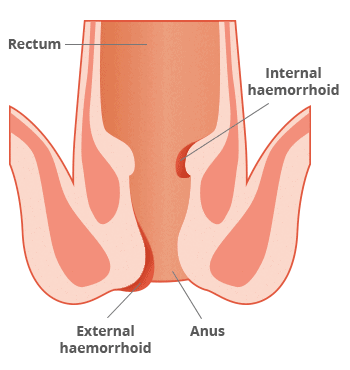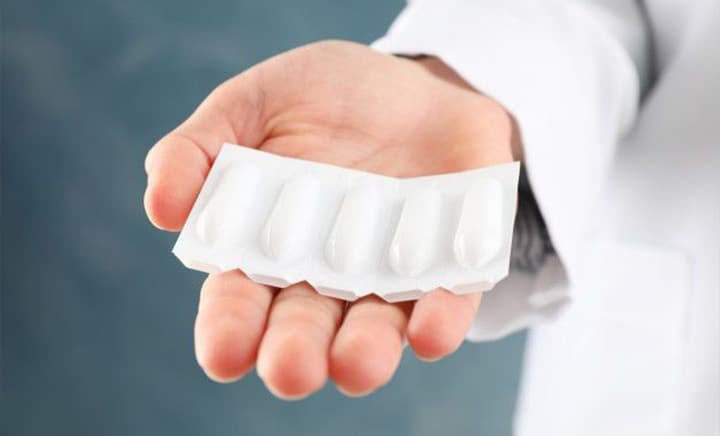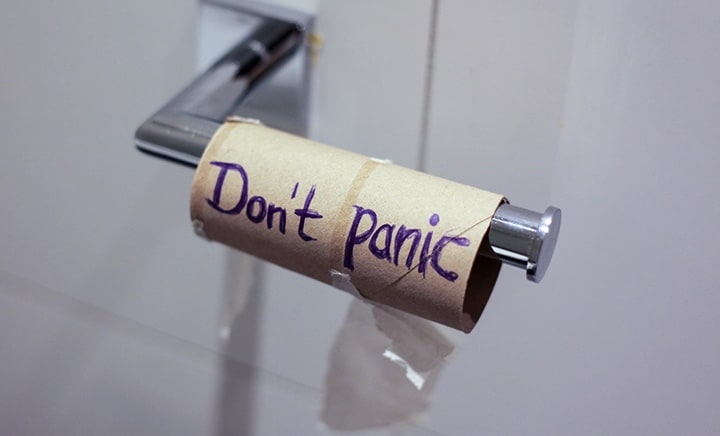Did you know one in three Singaporeans* suffer from haemorrhoids? Haemorrhoids/ hemorrhoids, also more commonly known as piles, is the term used for abnormally enlarged and swollen blood vessels in the anus and lower rectum. These veins may rupture and cause bleeding or slip out of place during defecation.
Anyone may contract haemorrhoids but they are more common as individuals age. Haemorrhoids are also common during pregnancy due to hormonal changes and the pressure of the baby on the pelvis area. Those who have a family history of haemorrhoids, are overweight or experience constipation often are susceptible to contracting haemorrhoids as well.
Haemorrhoids may cause discomfort and itching, affecting an individual’s way of living. While they usually go away on their own, treatment is necessary when there is bleeding or when the pain becomes unbearable. Here are some ways you can spot and prevent haemorrhoids.
*Source: Health Xchange
What are the symptoms of haemorrhoids?

There are three types of haemorrhoids – internal, external and thrombosed.
Internal haemorrhoid
Occurs inside the rectum, where you usually cannot see or feel it. Though rarely cause discomfort, straining when passing stool may cause further damage to the vein surface, resulting in bleeding. Occasionally, straining may also push the internal haemorrhoid and cause it to protrude out of the anal opening.
External haemorrhoid
Occurs around the anal area and are covered with sensitive skin. As there are more pain-sensing nerves in the area, external haemorrhoids often cause itching, bleeding, pain and irritation.
Thrombosed haemorrhoid
Occurs when blood clots start forming in an external haemorrhoid. A thrombosed haemorrhoid often feels like a hard and painful lump due to inflammation and swelling. Severe pain, itching and bleeding are also symptoms of a thrombosed haemorrhoid.
Other symptoms to look out for are:
- Unexplained loss of appetite and weight
- Sensation of incomplete emptying of stools despite already passing motion.
- Change in bowel habits
- Change in stool outlook
When should I visit the doctor if I think I might have haemorrhoids or piles?

As the symptoms of haemorrhoids are also similar to other diseases such as colorectal cancer or polyps, it is advisable to see a doctor for a more thorough examination to make sure there are no underlying conditions.
Head to the accident & emergency department (A&E) or seek medical advice immediately if you observe a rapid change in your symptoms, non-stop bleeding and/ or presence of large blood clots.
What treatments are there for haemorrhoids?
Treatment of haemorrhoids/ piles depends on the type and severity of your condition.
Simple home remedies and lifestyle changes such as increasing your fibre intake in your diet and drinking plenty of water may help to relive mild symptoms of haemorrhoids. Eating more fruits, vegetables, grains and supplements can help to soften stools and ensure your body gets enough nutrition. Cold packs or a sitz bath (soaking of the lower parts of your body in salt water) may help to ease the pain and swelling.
Doctors may prescribe oral medication, ointments and creams to alleviate the symptoms and prevent inflammation. In more severe cases, doctors may recommend minimally invasive treatments including litigation, injection or surgical procedures.
It is always important to consult a doctor when in doubt of any symptoms experienced, especially when there is pain and bleeding.

What are the risks of leaving haemorrhoids untreated?
Complications from haemorrhoids are usually uncommon but untreated conditions may still lead to:
- Anemia from excessive loss of blood, especially if symptoms have been around for a prolonged period
- Infection due to viral exposure and lack of care
- Thrombosed haemorrhoid rupturing, which can lead to more severe pain and bleeding
- Strangulated haemorrhoid; when blood supply gets cut off causing extreme pain
How can we prevent haemorrhoids?
One of the simplest ways to prevent haemorrhoids is to keep your stools soft to reduce straining the blood vessels around your anal and rectum area. Here are some prevention tips you can take before piles happen.
- Increase your fibre intake. Taking more fruits, vegetables and grains will help to soften the stools and make it easier to pass through. Adding more fibre to your diet can help to reduce gas and bloating. You may consider taking fibre supplements if you are more prone to constipation.
- Drink plenty of water. Keeping yourself hydrated will also help to soften stools. As the weather in Singapore is constantly warm, it is even more necessary to drink up. The Singapore Health Promotion Board recommends a daily intake of at least 6-8 glasses of water*, which is approximately 1.5-2 litres.
- Reduce straining during bowel movements. One common mistake in the toilet is holding your breath when trying to pass a stool. By straining and holding your breath, it puts more pressure on the veins in the anal and rectum area.
- Do not hold and put off going to the toilet when you have the urge to pass stools. Holding off can make your stool dry and hard, making it harder to pass.
- Get rid of bad toilet habits. Spending an excessive time on the toilet while engaging in activities such as reading, playing games or smoking should be avoided. Long periods of sitting as well as poor sitting posture can increase the pressure on those veins.
- Exercise regularly. Constant moderate exercises help to promote regular bowel movements. Maintaining a healthy weight also helps to reduce the pressure placed on the veins.
*Source: Health Hub
While many people may experience haemorrhoids / piles, this condition can be prevented through proper diet and good toilet practices. It is important to consult a doctor or specialist to correctly diagnose your condition and get the right treatment.
Make An Appointment
Make an appointment or contact the surgery centre to consult a specialist. To make an appointment, select "Specialist Appointment". Under Specialist Appointment Details, select "General Surgery", and include Haemorrhoids in the Remarks.
Make an enquiry. We will get back to you within 2 working days. You can reach us at 6311 1140.